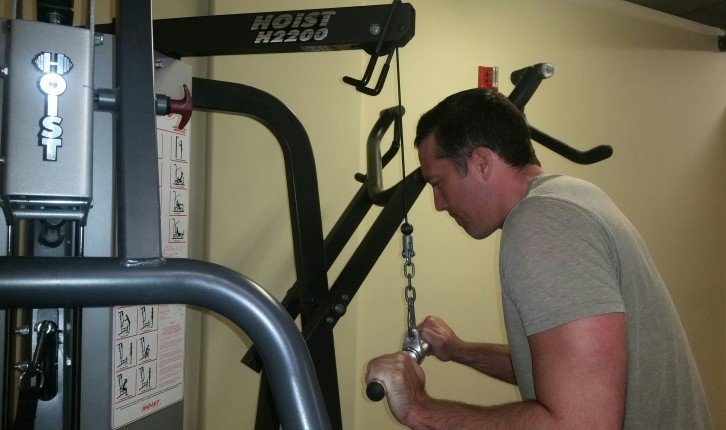
In a fast-paced world where time seems to constantly slip away, taking care of our physical health often takes a backseat. However, it is important to remember the countless benefits that come from staying physically fit. From boosting your mood and reducing stress to improving your overall quality of life, prioritizing your fitness can truly be a life-changing endeavor. In this article, we will explore the reasons why staying physically fit is not only beneficial but also essential for a happy and healthy lifestyle. So, let’s lace up those sneakers and embark on a journey towards a healthier you!
Improves overall health
Maintaining physical fitness is crucial for improving and sustaining overall health. Regular exercise has numerous benefits, one of which is reducing the risk of chronic diseases. Engaging in physical activities such as cardio exercises, weight lifting, and yoga can significantly lower the chances of developing conditions like heart disease, diabetes, and certain types of cancer. By staying active and incorporating exercise into your daily routine, you are taking proactive steps to safeguard your health.
In addition to reducing the risk of chronic diseases, staying physically fit also increases life expectancy. Studies have shown that individuals who engage in regular exercise tend to live longer than those who lead sedentary lifestyles. Physical fitness not only extends your lifespan but also enhances the quality of your life by promoting overall well-being.
Another benefit of staying physically fit is the boost it provides to your immune system. Regular exercise helps to strengthen your immune response, making it more effective at fighting off viruses, bacteria, and other harmful pathogens. A strong immune system is essential for preventing illness and maintaining good health.
Furthermore, physical fitness improves cardiovascular health. Engaging in activities that get your heart rate up, such as running, cycling, or swimming, helps to strengthen your heart and improve blood circulation. This can reduce the risk of heart disease, lower blood pressure, and improve overall cardiovascular function.
Lastly, staying physically fit enhances respiratory function. Regular exercise strengthens the muscles involved in breathing, allowing you to take deeper breaths and efficiently deliver oxygen to your body. Improved respiratory function can lead to better lung capacity and endurance, making physical activities and daily tasks easier to perform.
Enhances mental well-being
Physical fitness not only benefits your body but also your mind. Engaging in regular exercise has been proven to reduce symptoms of depression and anxiety. Exercise stimulates the release of endorphins, which are natural mood boosters that can help alleviate feelings of sadness and anxiety. Even short bouts of exercise can have immediate positive effects on your mood and mental state.
In addition to reducing symptoms of depression and anxiety, staying physically fit can increase your self-confidence. Regular exercise can help you achieve personal goals and improve your physical appearance, leading to a greater sense of self-worth and confidence in your abilities.
Exercise also plays a vital role in improving mood. The release of endorphins during physical activity can create a sense of euphoria and happiness, often referred to as the “runner’s high.” Regular exercise can help regulate your mood and improve emotional well-being.
Moreover, physical fitness enhances cognitive function. Exercise has been shown to improve memory, attention span, and overall brain function. It increases blood flow to the brain, promoting the growth and development of new brain cells. By incorporating regular exercise into your routine, you can boost your brainpower and maintain cognitive health.
Physical fitness also promotes better sleep. Regular exercise can help regulate your sleep patterns and improve the quality of your sleep. It reduces the time it takes to fall asleep and enhances sleep duration and efficiency. Getting adequate sleep is crucial for maintaining mental well-being and overall health.
Manages weight
One of the most well-known benefits of physical fitness is its ability to help manage weight. Regular exercise helps burn calories and can contribute to weight loss and weight maintenance. Engaging in activities like running, cycling, or even brisk walking can help you shed unwanted pounds and maintain a healthy weight.
Exercise also improves metabolism, which is the process by which your body converts food into energy. Regular physical activity boosts your metabolic rate, allowing you to burn calories more efficiently even when at rest. This can help prevent weight gain and assist in weight management.
Additionally, physical fitness helps build muscle mass. Strength training exercises, such as weight lifting and bodyweight exercises, help to increase muscle mass and improve overall body composition. As muscle is denser than fat, having more muscle can lead to a leaner, toned appearance and can help you burn more calories throughout the day.
Promoting healthy weight loss is another benefit of staying physically fit. Engaging in regular exercise in combination with a balanced diet can help you maintain a calorie deficit, which is necessary for weight loss. It is important to note that losing weight in a healthy and sustainable manner requires a combination of exercise and proper nutrition.
Moreover, physical fitness is not only essential for weight loss but also for weight maintenance. Regular exercise helps to prevent weight regain and allows you to maintain the weight you have worked hard to achieve. By incorporating exercise into your lifestyle, you increase your chances of long-term weight management success.
Increases energy levels
Physical fitness is a powerful tool for boosting energy levels and combating fatigue. Regular exercise helps increase endurance and improves physical performance, leading to increased stamina and energy.
Engaging in activities such as running, swimming, or cycling can boost your endurance over time. Regularly challenging yourself and gradually increasing the intensity of your workouts can help improve your cardiovascular fitness, allowing you to perform physical tasks with greater ease and efficiency. As your endurance improves, you will find yourself feeling more energized throughout the day.
Physical fitness also enhances overall physical performance, which can contribute to increased energy levels. Strengthening your muscles through resistance training and engaging in activities that improve balance and coordination, such as yoga or Pilates, can help you perform daily tasks more efficiently. Improved physical performance translates to increased productivity in other areas of your life.
Not only does physical fitness improve physical energy, but it also reduces fatigue. Regular exercise can help combat feelings of tiredness and lethargy by stimulating the release of endorphins, improving blood circulation, and enhancing mood. With improved fitness and reduced fatigue, you can experience a significant increase in energy levels.
Moreover, physical fitness improves the quality of life by providing you with the energy and vitality needed to fully engage in daily activities. Whether it’s playing with your children, pursuing hobbies, or excelling at work, regular exercise can help you live life to the fullest by increasing your energy levels and enhancing your overall well-being.
Prevents age-related decline
As we age, it becomes increasingly important to stay physically fit in order to prevent age-related decline. Regular exercise can help maintain muscle strength, preserve bone density, improve balance and flexibility, reduce the risk of falls and fractures, and keep the mind sharp.
Maintaining muscle strength is crucial for overall functionality and independence as we age. Regular resistance training exercises, such as lifting weights or using resistance bands, can help preserve muscle mass and strength. Strong muscles enable you to perform everyday tasks with ease and reduce the risk of physical limitations.
Physical fitness also plays a role in preserving bone density. Weight-bearing exercises, such as walking or dancing, help stimulate bone growth and prevent age-related bone loss. By engaging in regular exercise, you can reduce the risk of osteoporosis and maintain healthy bones as you age.
Improving balance and flexibility is another benefit of staying physically fit. Incorporating activities like yoga or tai chi into your routine can help enhance balance and flexibility, reducing the risk of falls and improving overall mobility. These activities also contribute to better posture, which is essential for maintaining proper alignment of the body.
Reducing the risk of falls and fractures is crucial for maintaining independence and quality of life as we age. Regular exercise can help improve strength, coordination, and balance, reducing the likelihood of falls and associated injuries. By staying physically active, you can minimize the risk of physical setbacks that may limit your mobility and independence.
Physical fitness also plays a key role in keeping the mind sharp. Exercise stimulates neurogenesis, the growth of new brain cells, and promotes cognitive function. Regular physical activity has been shown to enhance memory, improve focus and attention, and reduce brain fog. By staying physically fit, you can help prevent cognitive decline and maintain mental acuity as you age.
Improves daily functionality
Physical fitness is essential for improving daily functionality and ensuring that you can perform everyday tasks with ease. Regular exercise increases mobility, enhances flexibility, fosters independence, improves posture, and reduces the risk of injury.
Increasing mobility is a significant benefit of physical fitness. Engaging in activities that promote movement, such as walking, swimming, or cycling, can help improve joint flexibility and range of motion. This allows you to perform daily activities, such as bending, lifting, and reaching, more easily and without discomfort.
Enhanced flexibility is another advantage of staying physically fit. Stretching exercises, such as yoga or Pilates, can help improve flexibility and joint mobility. Having good flexibility can make movements smoother, reduce the risk of muscle strains or sprains, and improve overall physical performance.
Physical fitness also fosters independence by promoting functional strength and endurance. Regular exercise helps build strength in the muscles used for daily activities, such as carrying groceries or climbing stairs. By maintaining functional strength, you can continue to perform these tasks independently, without relying on assistance.
Improving posture is another important aspect of physical fitness. Regular exercise helps strengthen the muscles that support proper posture, such as those in the core, back, and shoulders. Maintaining good posture not only reduces the risk of developing musculoskeletal imbalances but also improves breathing, digestion, and overall physical appearance.
Reducing the risk of injury is a key benefit of staying physically fit. Regular exercise helps improve overall body strength, coordination, and balance, making you less prone to injuries. Strong muscles, stable joints, and good flexibility can help protect against falls, strains, and other accidents that could hinder your daily functionality.
Promotes better social interactions
In addition to the physical and mental benefits, physical fitness also promotes better social interactions. Regular exercise can lead to increased confidence and self-esteem, provide opportunities to meet new people, encourage participation in group activities, foster shared fitness goals and achievements, and improve communication skills.
Staying physically fit can increase confidence and self-esteem. As you become fitter and more physically capable, you may gain a newfound confidence in yourself and your abilities. This increased self-assurance can positively impact your social interactions and improve your overall well-being.
Engaging in regular exercise can also provide opportunities to meet new people. Whether it’s through joining a fitness class, participating in team sports, or attending a workout group, exercising in a social setting allows you to connect with others who share similar interests. These connections can lead to new friendships and a stronger sense of community.
Participating in group activities is another way that physical fitness promotes better social interactions. Many fitness classes and sports activities involve teamwork and cooperation, providing an opportunity to bond with others and work towards a common goal. Shared experiences and accomplishments create a sense of camaraderie and can strengthen social relationships.
Setting and achieving fitness goals together can also foster improved social interactions. Whether it’s training for a race with friends or celebrating a milestone at the gym, shared fitness goals can provide a sense of unity and support. Encouraging and celebrating each other’s achievements strengthens social bonds and motivates everyone to keep striving for their best.
Furthermore, regular exercise can improve communication skills. Participating in group activities or engaging in social exercise settings allows for interactions with a diverse range of individuals. This can enhance your ability to communicate effectively, adapt to different social dynamics, and develop stronger interpersonal skills.
Reduces stress levels
Physical fitness is a powerful tool for reducing stress levels and promoting overall well-being. Regular exercise boosts endorphin levels, improves relaxation, acts as a healthy coping mechanism, enhances mood, and provides a distraction from daily worries.
One of the most well-known ways that physical fitness reduces stress is through the release of endorphins. Endorphins are natural chemicals in the brain that act as mood elevators and pain relievers. Engaging in regular exercise stimulates the release of endorphins, which can help reduce feelings of stress and anxiety.
Physical fitness also promotes relaxation. Whether it’s through engaging in a mindful yoga practice or taking a leisurely walk outdoors, regular exercise can help you unwind and lower stress levels. Physical activity provides an outlet for tension, allowing you to relax both mentally and physically.
Exercise serves as a healthy coping mechanism for dealing with stress. Instead of resorting to unhealthy behaviors such as excessive eating or drinking, engaging in physical activity provides a healthier outlet for stress. Regular exercise can help you manage and reduce stress levels in a constructive way.
Moreover, physical fitness enhances mood. The release of endorphins during exercise promotes a sense of well-being and happiness. Regular workouts can help improve your overall mood and decrease feelings of irritability, anger, or sadness. By incorporating physical activity into your routine, you can elevate your mood and experience greater emotional resilience.
Engaging in regular exercise can provide a much-needed distraction from daily worries. Focusing on your body and the movements involved in your chosen activity can help take your mind off stressors and give you a mental break. This can lead to a greater sense of mental rejuvenation and a reduced focus on stressors.

Improves brain health
Physical fitness not only benefits the body but also plays a crucial role in improving brain health. Regular exercise stimulates neurogenesis, enhances memory, improves focus and attention, reduces brain fog, and protects against cognitive decline.
One of the significant benefits of physical fitness on brain health is its role in stimulating neurogenesis, which is the growth and development of new brain cells. Engaging in regular exercise can promote the production of new neurons, particularly in the hippocampus, a region of the brain associated with memory and learning. This neurogenesis can help enhance brain function and overall cognitive health.
Physical fitness also improves memory. Regular exercise has been shown to enhance both short-term and long-term memory. Exercise increases blood flow to the brain, delivering oxygen and nutrients necessary for optimal brain function. This improved blood circulation aids in memory formation and retention.
In addition to memory, staying physically fit improves focus and attention. Regular physical activity increases levels of brain-derived neurotrophic factor (BDNF), a protein that supports the growth and maintenance of neurons. This leads to improved neuronal connections and enhanced cognitive function, including focus and attention.
Reducing brain fog is another advantage of physical fitness on brain health. Regular exercise helps increase blood flow to the brain, delivering oxygen and nutrients necessary for optimal brain function. This can result in improved mental clarity and a reduction in brain fog, allowing for better cognitive performance.
Physical fitness also plays a protective role against cognitive decline. Regular exercise has been shown to reduce the risk of age-related cognitive decline and certain neurodegenerative diseases such as Alzheimer’s. Engaging in physical activity throughout life can help maintain brain health and preserve cognitive function as you age.
Sets a positive example
Staying physically fit not only benefits you but also sets a positive example for those around you. By prioritizing your own health and well-being, you inspire friends and family, encourage healthy habits in others, provide motivation and support, demonstrate discipline and commitment, and promote a healthier society.
By making physical fitness a priority in your life, you become an inspiration to your friends and family. They witness the positive changes in your health and overall well-being, making them more likely to consider taking steps towards their own fitness journey. Your dedication and commitment can serve as a powerful motivator for others to make positive changes in their lives.
Additionally, by staying physically fit, you encourage healthy habits in others. Your active lifestyle can influence those around you to adopt healthier behaviors and prioritize their own well-being. Whether it’s engaging in physical activities together or sharing healthy meal ideas, your positive influence can help create a healthier environment for those around you.
Being committed to physical fitness also provides motivation and support to those seeking to improve their own health. Your dedication serves as a reminder that achieving fitness goals is possible with hard work and determination. By sharing your experiences, offering guidance, and providing encouragement, you can inspire others to stay motivated and overcome challenges along their fitness journey.
Demonstrating discipline and commitment through physical fitness sets a positive example for others. Consistently prioritizing exercise and maintaining a healthy lifestyle requires dedication and self-discipline. By showcasing these qualities, you encourage others to adopt a similar mindset and strive for personal growth and self-improvement.
Lastly, staying physically fit contributes to promoting a healthier society. By prioritizing your own health and well-being, you become an active participant in a larger movement towards a healthier community. Your positive influence can help create a ripple effect, inspiring others to make positive changes and contributing to a society that values and promotes physical fitness.
In conclusion, staying physically fit offers a myriad of benefits for overall health, mental well-being, weight management, energy levels, age-related decline prevention, daily functionality, social interactions, stress reduction, brain health, and setting a positive example. Incorporating regular exercise and physical activity into your lifestyle can lead to an improved quality of life, enhanced physical and mental well-being, and a positive impact on those around you. Take the first step towards a healthier and happier life by prioritizing physical fitness today.


